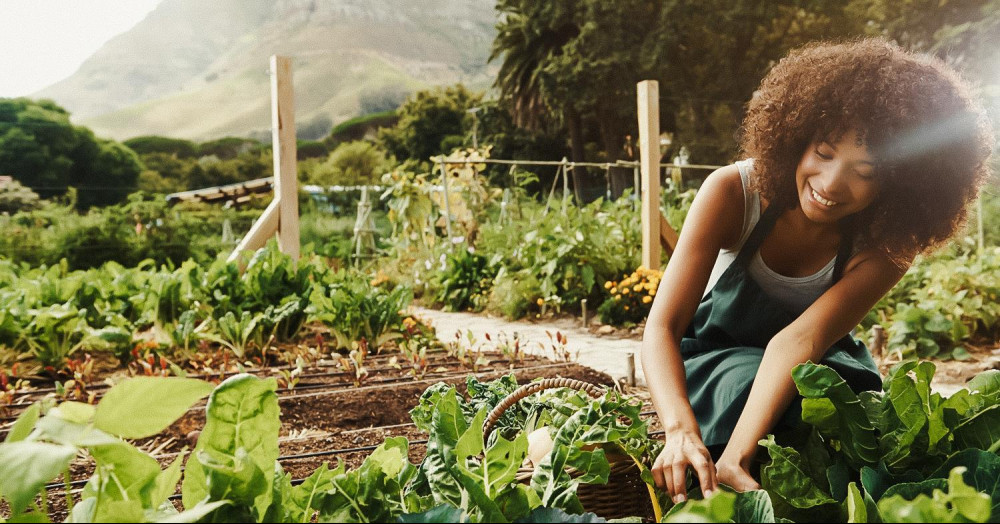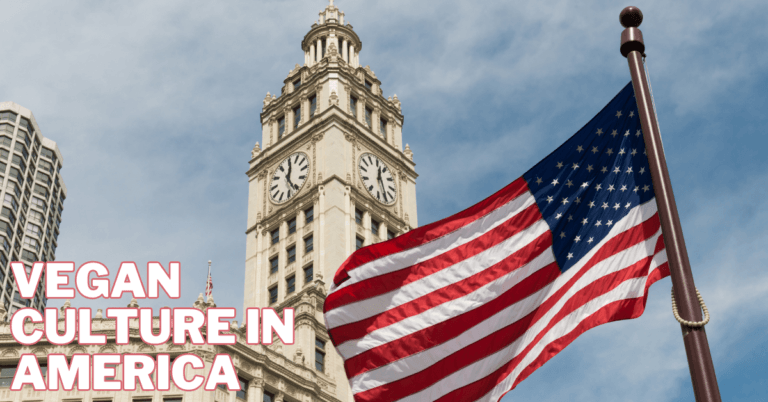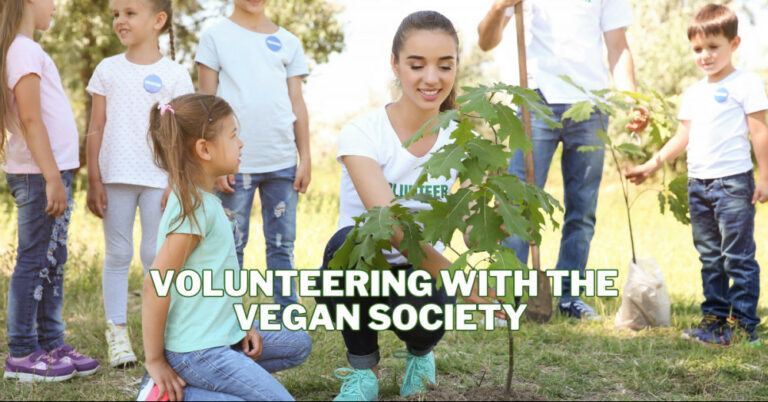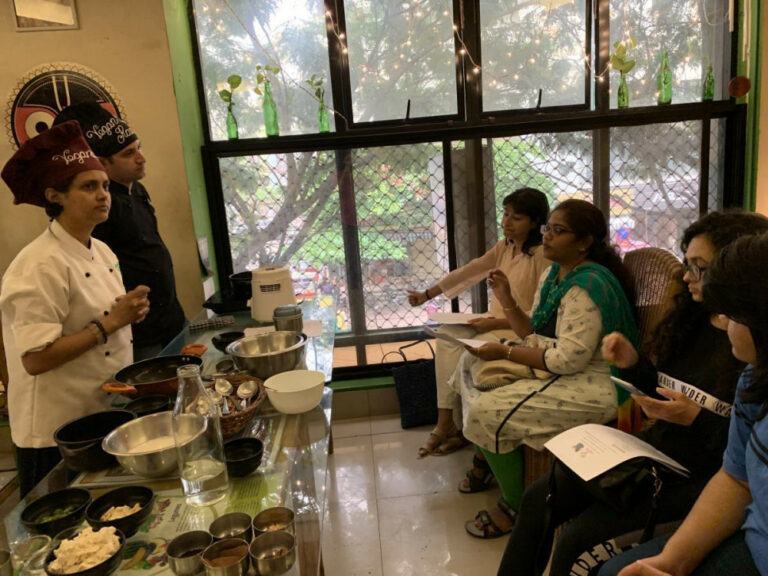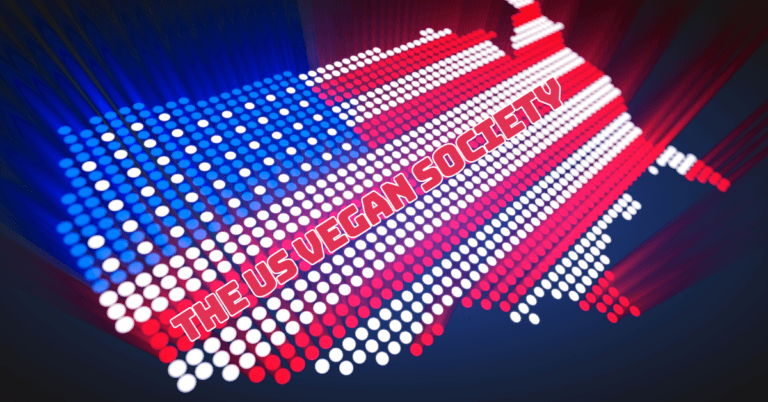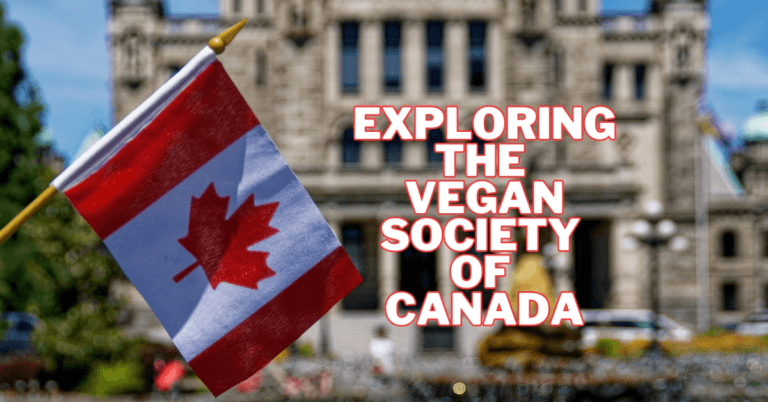Black Vegan Society
Black Vegan Society
Veganism is on the rise and has been for some time now. Studies have shown a correlation between speciesism and racism, and it's only natural for this to extend into veganism. Black vegans are on the rise, and we need to discuss them more.

Black vegan society has been on the rise, as evidenced by some notable black vegan celebrities such as JL Fields and Dr. AJ Chandler. A new study found that black vegans are more likely to be vegan for ethical reasons than health or environmental reasons. For those who don't know, a plant-based diet is:
- Less expensive: Eating a plant-based diet will save you money on food and cooking supplies, not to mention the cost of reducing meat intake.
- More nutritious: Eating a plant-based diet instead of an animal or standard American diet can improve your health or prevent disease in the future.
- More sustainable: A plant-based diet reduces your carbon footprint and water use, takes less time to prepare and leaves behind less waste.
Veganism is a diet, lifestyle and ethical philosophy that seeks to exclude the use of any animal products. It is sometimes called a “diet” because people who follow it do not consume meat, fish, dairy, eggs or honey. The vegan diet is often regarded as healthier than other diets and can help reduce the risk of heart disease and type 2 diabetes.
Here are some reasons why vegans choose to live this lifestyle: – Vegan food options are increasing, making it easier for people to find vegan products such as cheese and ice cream that taste good! – Not only is veganism better for you, but it's also better for our planet, which we all love!
The vegan movement is about improving one's health and animal welfare, and environmental concerns. One of the most marginalized members of this society is Black people. This blog post discusses how Black people can become involved in the vegan movement to empower themselves and others.
Many people believe that eating veganism is impossible, but this couldn't be more wrong. Eating vegan doesn't mean you can't enjoy your favorite foods anymore. Vegan food can be just as delicious and satisfying as any other type of cuisine. The black vegan society aims to educate people on eating vegan without missing out on the things they love.
Black veganism in the United States is a social and political philosophy that connects non-human animals with other social justice concerns such as racism and the lasting effects of slavery, such as the subsistence diets of enslaved people enduring as familial, cultural food traditions. Sisters Syl Ko and Aph Ko first proposed the intersectional framework and coined the term Black veganism. The Institute for Critical Animal Studies called Black veganism an “emerging discipline.”
In the US, Black veganism is a social and political philosophy and a diet. It connects non-human animals with other social justice concerns such as racism and the lasting effects of slavery, such as the subsistence diets of enslaved people enduring as familial and cultural food traditions. Dietary changes caused by the Great Migration also meant former farmers, who had previously grown or foraged their vegetables, became reliant on processed foods.
Adams described Black veganism as a “lens of race and animality” through which veganism could be understood as a radical movement for social justice. 149 Additionally, health issues within the black community have been cited as catalysts for people of colour to become vegan. Diet-related conditions include diabetes, heart disease, hypertension, and stroke.
Veganism And Racism
As a vegan, you might have heard the term ‘speciesism' used. It's a concept that states that we should care more about animals than humans. We're not supposed to eat them because they can't take care of themselves and are too much trouble for us to deal with. However, this isn't the case for all animals. Many species other than humans can live on their own without requiring human assistance, even though most of them don't look quite as pretty as humans do.
These non-human animals aren't seen as worthy in some cultures. Many cultures believe they should be killed simply because they've taken up land that belongs to somebody else—for example, when native Americans inhabited lands claimed by European settlers or when indigenous people occupied land claimed by settlers from England and Scotland (which is why the Broken Arrow Treaty was signed).
If we were to talk about racism against black vegans, it might be interpreted as ‘all blacks are racist,' but there is no such thing. Black vegans aren't demanding that black people stop being racist against white people or vice versa—they're just asking for equality for all races under the Constitution of the United States of America.
The rise of veganism has been a cause for concern for some black people. For one, there is the mental health aspect of eating a plant-based diet. To be clear, you don't have to be religious to see the moral implications of eating meat from an environmental perspective. The science is precise that the world is becoming more polluted, and greenhouse gas emissions are growing exponentially every year. Also, there is an increased risk of cancer associated with consuming meats from factory farms.
One way to think about this is that if someone were to eat meat from a factory farm, it would not only be bad for them physically but also spiritually as well. As a result, if you're personally concerned about this issue, you might want to consider switching to a vegan diet as well. Animals typically have feelings just like us humans do: they feel pain to avoid it, they experience fear to avoid being hurt again, and instinctively feel anger when something happens that causes them harm or pain.
Why Are Black Vegans Important?
Black vegans have been a part of our society for centuries. Veganism has been an essential part of black culture for nearly as long. African-Americans have long eaten animal products, and conscious veganism was an integral part of the black community from its inception.
But today, veganism is being adopted by a more significant number of black people than ever before. In fact, according to this 2014 survey, only 6 percent of black Americans identified themselves as vegetarians compared to 84 percent as meat-eaters in 2009.
Why would this be? It's simple: many benefits associated with the plant-based diet don't translate into socio-economic benefits. The plant-based diet is more healthful and environmentally friendly than any other diet option out there; it also doesn't involve animals and can be enjoyed by everyone regardless of race or income level.
Black Vegans have been a part of the vegan community for quite some time. Even as far back as 2014, there is already a black vegan society on Facebook. What's more, many Black Vegans out there are excited to share their message with others. However, many people don't know how to relate to black vegans. What do they do differently? How do they handle racism? How do they deal with the stigma associated with being a vegan?
Being Vegan can be hard work, and it has some serious drawbacks that impact your life. For example:
- You might not get enough protein in your diet. This can lead to increased weight gain and other health issues that you should be taking steps towards resolving anyway.
- It might be difficult to eat out if there are no restaurants that offer a vegan menu.
- You won't be able to eat all the things that you love now.
- You'll miss out on putting together delicious meals and snacks
Black Vegans Are On The Rise
Black vegans are becoming more common, and it's not just for their benefit. Vegans are socially conscious and care about the environment, so why wouldn't they be interested in supporting a plant-based diet? It's also interesting to note that black vegans tend to be women the non-vegan population has long ignored.
Veganism has a lot of benefits: It promotes health and wellness while reducing unnecessary animal suffering. It also helps people feel good about themselves by being aware of all the beautiful things they do for the world to support them.
Further, veganism can help us become more compassionate towards animals that suffer on our behalf. Killing animals is one of the most indirect ways we can harm them—or else they would never get hurt in the first place. One major misconception is that vegans don't eat meat; instead, they choose not to eat animal products. However, this isn't true at all—vegans consume meat too.
Veganism has been on the rise for the past few years. The reasons for this are varied. Some say it results from society's perception and lack of education about veganism. Others believe that people have become more conscious about their diets due to seeing other vegans speak out against animal cruelty (such as Kavita Subramanian).
Whatever the case may be, black vegans are growing in number, and they deserve to be spoken out about by everyone. What makes black vegans so important? Black people are often overlooked in the conversation surrounding veganism; however, they are some of the most accomplished people in regards to it.
What's The Future Of Black Vegans?
In a series of studies, The Vegan Society found that African-American vegans are more likely to support animal rights and civil liberties than whites. Additionally, 71 percent of black vegans were vegan and vegetarian. This is significant as the representation of veganism in the general population depends on how we perceive people's views towards animal rights and other social issues. Are black vegans more likely to be supportive of environmental sustainability?
Or do they care more about their well-being? Just because someone wants to eat vegetables doesn't mean they'll protect the environment. It's essential to understand where people stand on these issues before formulating an opinion.
There are many reasons black vegans may want to become vegetarians or vegans in general, but here's one that might click for you: It can help with their health. As we know from nutrition studies, diets high in animal products can lead to weight gain and diabetes; this is especially true for people who have been raised eating primarily plant foods.
As the number of people who identify as vegans continue to increase, the conversation around veganism is increasingly becoming an intersectional issue. This means that while other races are being actively encouraged to become vegan, the black community is still left out. In many ways, this is a good thing.
More people than ever are becoming vegan, but we do not see a change in our diet. While it's great that we're developing these foods, there needs to be more focus on how they can help make changes for people who are already vegan and others who want to adopt a plant-based diet.
Despite their diversity and popularity, black vegans have been left out of much discussion surrounding veganism. And if you think about it from a socio-economic perspective, it makes sense why this is happening. When you're used to eating meat or dairy products for your entire life, it's easy to fall into these habits again when you encounter foods that aren't as familiar to you (like avocado toast).
History Of Black Vegan Society
Black vegans have existed for quite some time now. The first black vegan was in the 1800s. This is important to note because it helps us understand our society and change it for the better. Over the years, black veganism has become more widespread. Today, several organizations are devoted to helping black people promote healthy eating and lifelong fitness.
Organizations such as Black Vegans of America (BVA) provide a way for members to promote their interests and feel included within a community that supports them in their pursuit of wellness and health. Because black people face higher rates of poor health outcomes than other groups, creating an environment where they can feel comfortable will help them achieve optimal health.
The history of black veganism goes back to the 1800s. Black Americans were slaves, and as such, they had no choice but to eat foods that came from animals. And because most blacks did not have access to quality food, they ate what they could get their hands on. Veganism is a way for people of all backgrounds to support and promote animal rights worldwide. It's also an excellent way for vegans to be seen as open, progressive allies in any conversation about animal rights.
Why Black Vegan Society?
A big reason veganism is on the rise is that it's an excellent, mainstream way to protest animal exploitation. A lot of vegans are also against racism and sexism. They can see that their lifestyle benefits animals and people, so they opt for veganism because it's an ethical choice.
The same goes with black vegans. Black vegans tend to be more aware of their impact on society and their impact on the planet as a whole. Black vegans are also more likely to empathize with animals than people who aren't black (and we're talking about the majority here). So this gives them an even greater reason to become a vegan and support animal rights.
A vegan is someone who can't be considered part of the food chain. A vegan doesn't eat meat, dairy, or eggs. They avoid products containing animal by-products and products that come in contact with animals. Additionally, a vegan believes in the non-violence of animals and respects their rights. All of these things are very important to a black vegan society. We need people like this to promote our cause and help demonstrate our power as a group.
There is no reason why the black vegan community shouldn't include everyone who follows us on social media and particularly those who aren't African-American. We can show that black communities are inclusive, diverse and filled with more opportunities than ever before.
How The Rise In Black Veganism Will Benefit Our People And The Planet
Black vegans are the latest in a long line of people who have seen the connection between their eating choices and the environment. Veganism is often equated with environmentalism, but it's important to note that veganism does not mean I don't care about my planet. When you eat animals, you're feeding them to death. Most animals raised for food are raised in factory farms or “slaughterhouses,” which kill the animals and then harvest their flesh for human consumption.
Livestock production is one of the most destructive industries in America, and animal welfare advocates have worked tirelessly to expose these practices. In 2005, PETA conducted undercover investigations into several slaughterhouses across America, exposing horrific conditions at many of them.
That same year, PETA released a video showing a cow being slaughtered without its head attached and footage showing workers beating cows with bats. These videos made headlines worldwide and forced major businesses to become more stringent when it came to ethical standards. Several large companies, including Tyson Foods, ConAgra, and Perdue Farms, have recently announced their intention to undergo animal welfare audits and improve practices.
Veganism is becoming more popular and mainstream for a reason. People recognize the benefits of being vegan, such as fewer health problems and a better diet. But we also recognize that black people make up less than 2 percent of the world's population. If we want to help those who are not-so-vegan — or if you want to support this movement — it's essential to address their needs.
We know there is already a black vegan society on social media and that many black vegans have started businesses to provide food for themselves and others. This community has grown exponentially, but it isn't as big as we would like.
There will eventually be enough demand for more wholesome vegan products to start growing our supply chain on an organic scale. It will take time before the black vegan community feels safe enough to share its story without worrying about backlash, but eventually, they will do so because they need our support. In more than 40 years of living under a racist system, these people have had their lives destroyed by injustice and oppression.
The Benefits Of Having A Black Vegan Society
Black vegans have been an active group of people for a long time. They've been the first to speak out against racism and hatred, and they've done it in their communities. Though there are no studies about how much black vegans influence other races or non-vegans, it's clear that their influence does exist.
People who follow veganism have shown that they're more likely to support animal rights than non-vegan people. People also tend to be more polite and more mindful of others' feelings. That's not all, though: Black veganism is also incredibly important because it brings awareness to issues such as animal cruelty and the impact it has on our planet.
For one thing, we know that racism exists because animals suffer at times due to humans' beliefs about them. Additionally, educating our people about animal cruelty might help us better humans overall. A way to do this is by encouraging them to become vegan and teaching them how animals feel at different stages in life.
How To Start Your Own Vegan Society
There are two types of people in the world: Those with a strong sense of social justice and those who don't. While these may be mutually exclusive, we can agree that something about being vegan makes you want to stand up for those who cannot.
There are many factors at play here, but one sure thing is that there is now an entire community out there fighting for the rights of their fellow humans. According to Vegan Outreach, “Vegan Outreach works to increase awareness of veganism around the world, educate people about what animals eat and how they are killed, promote compassion in all things animal-based, help end hunger and promote sustainable living.”
Conclusion
A lot of vegans are black, and they are leading the charge. This is because veganism is a great way to show other people what it means to be non-racist without actually being racist. A perfect example is the “Veganuary” campaign. The idea behind this campaign is that you can eat no animal products whatsoever for a month on one day in February. By doing so, you're sending a message to the world about what being vegan means.
It's not about giving up your favorite foods; it's about saying that eating animals doesn't have to be a part of your life anymore. There has been something called “The Black Vegan Society” created by Zainab Barghouti. This group was born out of a need among African-Americans to advocate for themselves and each other while also impacting their community at large. They believe that black people should live in harmony with nature and respect other cultures around them as much as their own culture.
I trust you enjoyed reading the article about the Black Vegan Society. Please stay tuned. There are more blog posts to come very shortly.
JeannetteZ
Want To Learn How To Create Delicious, Cruelty-Free, Healthy AND 100% Vegan Meals? Try These Awesome Vegan Cooking Courses With A Free 7-DAY MEMBERSHIP
Your Opinion Is Important To Me
Ideas? Thoughts? Questions? I would love to hear from you. Would you please leave me your questions, experience, and remarks about this article on the Black Vegan Society in the comments section below? You can also reach me by email at Jeannette@LivingTheVeganLifestyle.org.
Here are the links to some of my favourite articles:
What Vegan Foods Have The Most Calcium
The Vegan Diet Plan For Beginners
The Vegan Diet And Everything To Know

